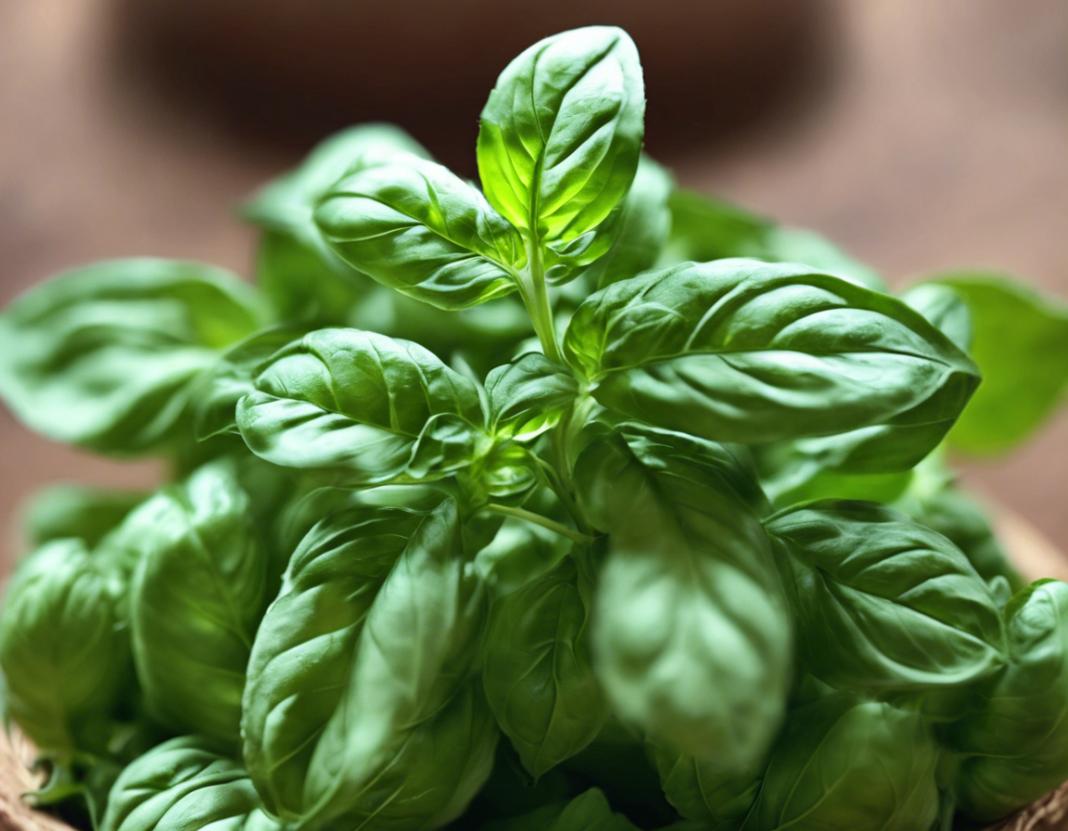Basil, also known as ‘Tulsi’ in Hindi, is a popular herb known for its distinct aroma and numerous health benefits. From culinary uses to medicinal properties, basil holds a special place in Indian households. In this article, we delve into the aromatic world of basil, exploring its various types, benefits, uses, and interesting facts.
Types of Basil:
There are several types of basil that are commonly used in different cuisines and for various purposes:
1. Sweet Basil (Ocimum basilicum):
- Most common type used in Italian cuisine.
- Features large, bright green leaves with a sweet aroma.
2. Holy Basil (Ocimum tenuiflorum or Ocimum sanctum):
- Known as ‘Tulsi’ in Hindi.
- Considered sacred in Hinduism.
- Used in Ayurvedic medicine for its medicinal properties.
3. Thai Basil (Ocimum basilicum var. thyrsiflora):
- Commonly used in Thai cuisine.
- Has a spicy, licorice flavor.
4. Lemon Basil (Ocimum citriodorum):
- Features a strong lemon fragrance.
- Adds a citrusy twist to dishes.
Health Benefits of Basil:
Basil is not only valued for its unique flavor but also for its numerous health benefits:
1. Antioxidant Properties:
- Rich in polyphenols that help protect the body from damage caused by free radicals.
- Supports overall health and well-being.
2. Anti-Inflammatory Effects:
- Contains eugenol, which can help reduce inflammation in the body.
- Beneficial for conditions like arthritis.
3. Digestive Aid:
- Helps improve digestion and alleviate bloating.
- Acts as a natural remedy for indigestion.
4. Immune-Boosting:
- Supports the immune system with its antimicrobial properties.
- Helps the body fight off infections.
Culinary Uses of Basil:
Basil is a versatile herb that can enhance the flavor of various dishes:
1. Pesto Sauce:
- A classic Italian sauce made with basil, pine nuts, garlic, Parmesan cheese, and olive oil.
- Perfect for pasta dishes or as a spread.
2. Caprese Salad:
- A simple yet delicious salad made with fresh tomatoes, mozzarella cheese, basil leaves, olive oil, and balsamic vinegar.
- Represents the colors of the Italian flag.
3. Herbal Tea:
- Steeping basil leaves in hot water creates a fragrant and soothing herbal tea.
- Can be enjoyed plain or with a touch of honey.
4. Curries and Stir-Fries:
- Adding basil leaves to curries, stir-fries, and soups enhances the flavor profile.
- Complements dishes with its fresh and aromatic notes.
Interesting Facts about Basil:
Basil has a rich history and a few fascinating facts that make it a truly remarkable herb:
1. Symbol of Love:
- In Italy, basil is considered a symbol of love.
- It is associated with the saying, “If you love me, give me basil.”
2. Insect Repellent:
- The strong aroma of basil acts as a natural insect repellent.
- Planting basil around the garden can help keep pests away.
3. Medicinal Herb:
- In Ayurveda, holy basil is revered for its medicinal properties.
- It is believed to promote longevity and overall health.
4. Gastronomic Delight:
- Basil is a key ingredient in various cuisines around the world.
- Its fresh and aromatic flavor adds depth to dishes.
Frequently Asked Questions (FAQs) about Basil:
Q1: What is the best way to store fresh basil?
A: To keep basil fresh, trim the stems and place them in a glass of water on the counter. Cover loosely with a plastic bag and change the water every couple of days.
Q2: Can I use dried basil instead of fresh basil in recipes?
A: While fresh basil offers a more vibrant flavor, dried basil can be used as a substitute. Use approximately one-third of the amount specified for fresh basil.
Q3: What are the different ways to incorporate basil into skincare routines?
A: Basil can be used in skincare as a natural toner or added to face masks for its antioxidant properties. It can help reduce inflammation and promote clear skin.
Q4: How can I grow basil at home?
A: Basil can be easily grown at home in pots or containers. Ensure it receives plenty of sunlight, water it regularly, and pinch off flowers to encourage leaf growth.
Q5: Are there any side effects of consuming basil?
A: While basil is generally safe when consumed in moderate amounts, some people may be allergic to it. It is advisable to consult a healthcare provider if you have concerns.
Exploring the aromatic world of basil in Hindi can open up a whole new realm of culinary and medicinal possibilities. Whether you savor the sweet flavor of Sweet Basil in pasta dishes or enjoy the holistic benefits of Holy Basil in Ayurvedic remedies, this herb truly shines in its versatility and aroma. Incorporate basil into your daily routine and experience the wonders it has to offer for your health and well-being.
